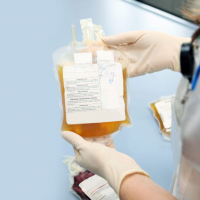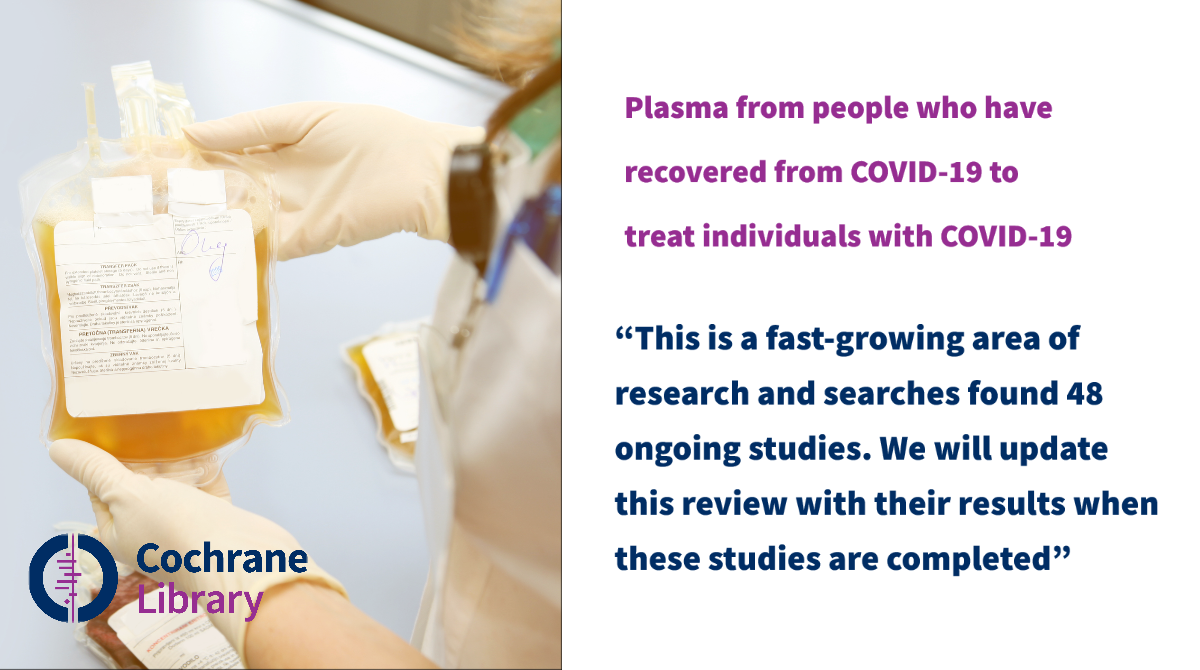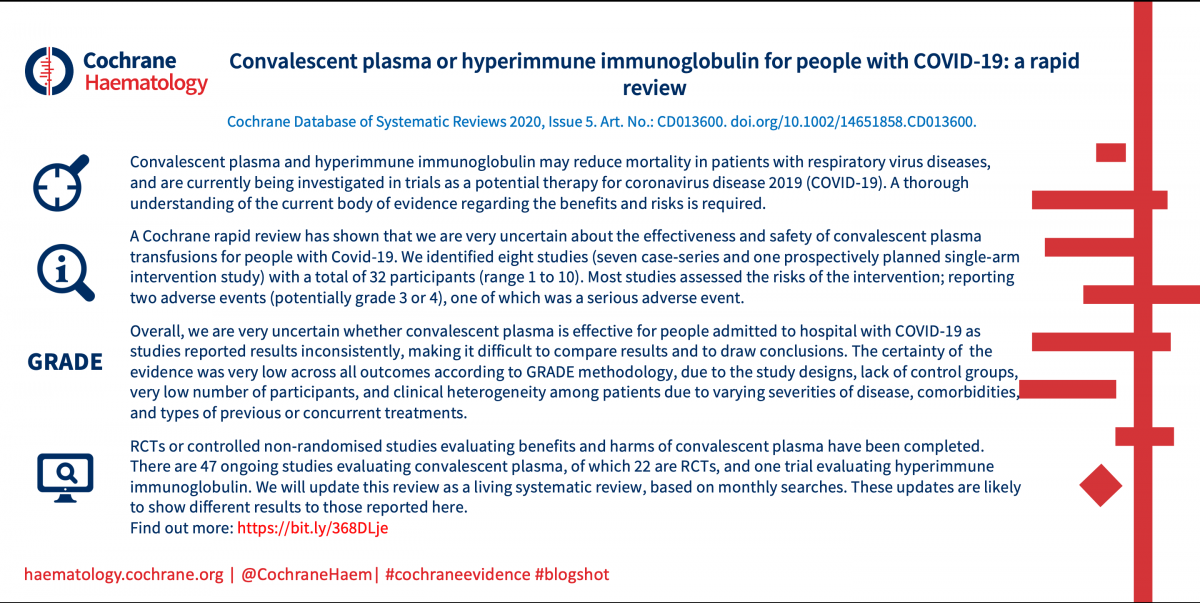
Rapid Review: Plasma from people who have recovered from COVID‐19 to treat individuals with COVID‐19
People who have recovered from COVID-19 develop natural defences to the disease in their blood (antibodies). Antibodies are found in part of the blood called plasma. Plasma from blood donated from recovered patients, which contains COVID-19 antibodies, can be used to make two preparations. Firstly, convalescent plasma, which is plasma that contains these antibodies. Secondly, hyperimmune immunoglobulin, which is more concentrated, and therefore contains more antibodies.
Convalescent plasma and hyperimmune immunoglobulin have been used successfully to treat other respiratory viruses. These treatments (given by a drip or injection) are generally well-tolerated, but unwanted effects can occur.
The review authors wanted to know whether plasma from people who have recovered from COVID-19 is an effective treatment for people with COVID-19, and whether this treatment causes any unwanted effects.

The authors searched major medical databases for clinical studies on treatment with convalescent plasma or hyperimmune immunoglobulin for people with COVID-19. Studies could be conducted anywhere in the world and include participants of any age, gender or ethnicity, with mild, moderate or severe COVID-19.
The review includes eight completed studies, with 32 participants who received convalescent plasma. None of the studies randomly allocated participants to different treatments (randomised trials produce the best evidence). None of the studies included a group of people who did not receive convalescent plasma, as a comparison group.
Certainty (confidence) in the evidence is very limited because the studies were not randomised and did not use reliable methods to measure their results. Furthermore, they had only a small number of participants, who received various treatments alongside convalescent plasma, and some had underlying health problems.
The authors are very uncertain whether plasma from people who have recovered from COVID-19 is an effective treatment for people with COVID-19. The completed studies the authors found were poor quality and their results could be related to the natural progression of the disease, other treatments that the participants received, or to convalescent plasma.

Lead author, Sarah Valk from the Center for Clinical Transfusion Research at Sanquin Blood Supply in the Netherlands, says: "In summary, the information from the studies that were available in late April 2020 means that we remain very uncertain about the effectiveness and safety of using convalescent plasma for people with COVID-19. Despite extensive searching, we were only able to include very low-quality evidence, from small uncontrolled studies, in which the participants received many other treatments. Different outcome measures were reported and we cannot know if recovery was due to the treatment or the natural course of the disease."
"However, this field is changing rapidly. We identified approximately 50 on-going studies, of which 22 are randomized trials and, so, we will be updating this review periodically, as a 'living systematic review', so that it reflects the most current, available evidence."
You can hear more from Sarah on this review by listening to the Cochrane podcast below; a transcript of the podcast is also available.
Evidently Cochrane, a blog by Cochrane UK, explains in plain terms what the Cochrane evidence says so far about using Covalescent plasma to treat people with COVID-19.

